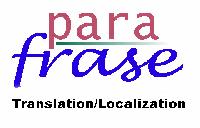Translation theory training -- needed? Thread poster: Rebecca Freed
|
|---|
I\'ve been looking around for a translation training program (in my current locale of Northern California) and don\'t see any reasonably close by -- or part time. I\'m wondering how valuable knowing theory is--or whether you can learn to do a good job of translation by just plunging into the practice.
[addsig]
| | | | Jon Zuber (X)
Spanish to English
+ ...
| Translation theory and translation training are two different animals. | Jan 26, 2002 |
Translation theory is a branch of literary theory and comparative literature, and has nothing to do with sitting down and earning a living as a translator. As for formal training, I would advise a few carefully selected courses —if that— rather than a full program. I think you\'ll conclude if you study the descriptions that a diploma or certification program will have you paying for more than you need. As for plunging right in, the key to that is good feedback. You need people who will criti... See more Translation theory is a branch of literary theory and comparative literature, and has nothing to do with sitting down and earning a living as a translator. As for formal training, I would advise a few carefully selected courses —if that— rather than a full program. I think you\'ll conclude if you study the descriptions that a diploma or certification program will have you paying for more than you need. As for plunging right in, the key to that is good feedback. You need people who will criticize your work mercilessly at the outset, before you can get into bad habits. ▲ Collapse
| | | | | Several threads on this issue | Jan 27, 2002 |
If you check the forums you\'ll find interesting threads; unfortunately, we don\'t seem to get even close to an agreement! 
Anyway, there is a lot of bibliography on Translation Theory. Maybe you can start reading a little before actually joining a training program.
Best regards,
Patricia
[addsig]
| | | | Lia Fail (X) 
Spain
Local time: 11:45
Spanish to English
+ ...
| Yes.......... | Jan 27, 2002 |
I think theory is important, it helps you become systematic, helps you resolve dilemmas on the basis of acquired theoretical knowledge, gives you confidence in your decisions, raises questions about \'right and wrong\' in translation, makes you aware of what is required by author, reader, etc, etc etc......Finally, it\'s fascinating if you\'re interested in translation.
I started off without theory, but having studied theory later has done me no end of good.
| | |
|
|
|
| How to improve as a translator | Jan 27, 2002 |
I am starting to wonder, myself, how to improve as a translator. Most courses here in the U.S. (at least in my program) are more theory than practice, and as far as improving as I work, I have gotten comments so far on none of the translations I have done for agencies. (Except for one translation test.)
How can we improve as we work if we are not given feedback? Do better agencies give more feedback? How often do translators get to see the edited results of their translation... See more I am starting to wonder, myself, how to improve as a translator. Most courses here in the U.S. (at least in my program) are more theory than practice, and as far as improving as I work, I have gotten comments so far on none of the translations I have done for agencies. (Except for one translation test.)
How can we improve as we work if we are not given feedback? Do better agencies give more feedback? How often do translators get to see the edited results of their translations?
Theodore Quester ▲ Collapse
| | | | Rick Henry 
United States
Local time: 04:45
Italian to English
+ ...
| On getting feedback... | Jan 27, 2002 |
It usually takes time to get feedback from agencies, in my experience, but it is provided if you ask. I normally deal with project managers who don\'t necessarily know the target language. What usually happens in that case is they get feedback from the proofreader. Then it\'s passed on to me, if I ask. If I don\'t ask, I get a \"thanks\" (and if they\'re good agencies, I get a check soon thereafter without having to send reminders  ) It\'s been... See more ) It\'s been... See more It usually takes time to get feedback from agencies, in my experience, but it is provided if you ask. I normally deal with project managers who don\'t necessarily know the target language. What usually happens in that case is they get feedback from the proofreader. Then it\'s passed on to me, if I ask. If I don\'t ask, I get a \"thanks\" (and if they\'re good agencies, I get a check soon thereafter without having to send reminders  ) It\'s been my practice from day one to always ask if they were happy with my work. When I work with an agency for the first time, I send a short questionnaire with the invoice asking several things - on-timeliness, accuracy, reasonable rates, etc. ) It\'s been my practice from day one to always ask if they were happy with my work. When I work with an agency for the first time, I send a short questionnaire with the invoice asking several things - on-timeliness, accuracy, reasonable rates, etc.
R.
==
Quote:
On 2002-01-27 02:18, tedquester wrote:
How can we improve as we work if we are not given feedback? Do better agencies give more feedback? How often do translators get to see the edited results of their translations?
Theodore Quester
▲ Collapse
| | | | | Should Proz.com offer such e-training? | Jan 27, 2002 |
There are requests for hands-on training coming from every corner of the globe (there is an identical thread on an Italian list of literary translators). And there are people making money promising the world with the advanced training they offer.
People offering this course should be paid naturally and we could arrange for training to be provided by proz.com, considering the array of professionals we have at our disposal in many language combinations.
In my experience (I hav... See more There are requests for hands-on training coming from every corner of the globe (there is an identical thread on an Italian list of literary translators). And there are people making money promising the world with the advanced training they offer.
People offering this course should be paid naturally and we could arrange for training to be provided by proz.com, considering the array of professionals we have at our disposal in many language combinations.
In my experience (I have been teaching a translation seminar now for two years) a bit of theory is necessary and only insofar as the text under discussion allows. Theory should be seen as the way to generalize from pratical problems and offer the translator guidelines for the future, almost like a \"aide de memoire\", a key on how to address problems, not the be all and end all of the seminar.
I always start with an \"easy\" somewhat literary copy to address some of the larger problems translation poses and that\'s the extent of the general theory I offer. The principles are then referred to as I move through different types of texts and different contents. And again used at the end of the seminar to sum up.
I don\'t know whether this answer your question, but Proz.com would be a great place to put in place a sort of hands-on e-training.
paola l m
co-mod EN-IT ▲ Collapse
| | | | Giles Watson 
Italy
Local time: 11:45
Italian to English
In memoriam | What about peer training? | Jan 27, 2002 |
We can always help each other.
Here is one way it happens: in team translation projects.
I am constantly coordinating, or collaborating on, team projects from Italian into English, generally but not always in the wine sector. Each project can involve, apart from the straightforward distribution, collation and editing of text, the following training elements:
circulating glossaries and/or other reference material;
solicitin... See more We can always help each other.
Here is one way it happens: in team translation projects.
I am constantly coordinating, or collaborating on, team projects from Italian into English, generally but not always in the wine sector. Each project can involve, apart from the straightforward distribution, collation and editing of text, the following training elements:
circulating glossaries and/or other reference material;
soliciting and circulating contributions of general interest from team members;
providing feedback on recurring or topic-specific inaccuracies in individual translators\' work (and circulating the information - no names! - if of general interest);
learning from other translators\' work and coordinators\' comments on my versions.
No one is perfect. Generally teams include old hands but also people who are good translators with limited knowledge of wine, or perhaps wine writers with more or less limited experience of translation. New translators are constantly arriving and the ones who can\'t meet deadlines are constantly being discarded.
Nowadays, many translation projects require a team approach simply because a single translator cannot cope with the sheer quantity of work in the time available. Team working can only become more widespread and, of course, Proz itself is enthusiastically promoting the trend by providing a range of open-access web-based services.
So why don\'t we take advantage and use team projects we are involved in to provide \"learning by doing\"? It means the coordinator making a (very little) extra effort but the rewards are tangible. If nothing else, it creates a \"team spirit\" and means that people will be happy to work with you again on your next project.
Just a thought,
Giles ▲ Collapse
| | |
|
|
|
Rebecca Freed 
Local time: 01:45
French to English
+ ...
TOPIC STARTER | Thanks for the advice. | Jan 27, 2002 |
Any recommendations for reading material would be most welcome. I have found Bruno Osimo\'s translation course at www.logos.it, and it seems like a good way to get an overview of the field.
This site, and especially the forums, have been the most helpful resource I\'ve found on the Web for providing a sense of what it\'s like to work as a translator.
| | | | Dyran Altenburg (X) 
United States
Local time: 05:45
English to Spanish
+ ...
| You might want to check out NYU's Certificate in Translation | Jan 27, 2002 |
http://www.scps.nyu.edu/dyncon/acfl/cert_tran.html
The Certificate in Translation--an optional professional credential--is intended for linguistically skilled individuals of diverse professional and educational backgrounds who seek to develop abilities in the field of translation. The Certificate can be earned in one of five language pairs or in general translation:
... See more http://www.scps.nyu.edu/dyncon/acfl/cert_tran.html
The Certificate in Translation--an optional professional credential--is intended for linguistically skilled individuals of diverse professional and educational backgrounds who seek to develop abilities in the field of translation. The Certificate can be earned in one of five language pairs or in general translation:
*French to English Translation
*German to English Translation
*Spanish to English Translation
*English to Portuguese Translation
*English to Spanish Translation
*General Translation
Certificate Requirements:
Admission: Students must pass an admissions test to obtain permission to enroll in the prerequisite course Introduction to Translation Studies in the language pair of their choice. Admissions test dates and information are listed below. Test results are valid for one year. Students are formally admitted to the program only upon successful completion of Introduction to Translation Studies with a grade of B or better.
Students wishing to register for a single course without pursuing a certificate must still pass the admissions test and receive permission from the director prior to enrolling. A maximum of two courses completed by noncertificate students may be counted retroactively toward a certificate.
Course of Study: Certificates are awarded to students who success fully complete six courses with an average grade of B or better. With the exception of the Certificate in General Translation, the six courses (one required, at least four core, and one elective) must be taken in the language pair of specialization as outlined below. Students pursuing the Certificate in General Translation must take the required course and three core courses in one language pair and two core courses in a second language pair, with prior approval of the director.
Online Certificate:
Starting this spring you can take any of our translation certificate programs online. French-English, Spanish- English and English-Spanish are available online as well as on-site. German-English and English-Portuguese are available online only. You must have computer facilities with at least Netscape 4.0 or equivalent and be computer- proficient. See online system requirements for details.
[ This Message was edited by: on 2002-01-27 23:17 ] ▲ Collapse
| | | | Rebecca Freed 
Local time: 01:45
French to English
+ ...
TOPIC STARTER | The NYU certificate looks like a great program ... | Jan 28, 2002 |
albeit pricey. I think the courses cost about $660 each. It\'s part of the reason I asked the original question. If you\'re committed to a course of study, it\'s not too much to pay, but it\'s a lot if you\'re just exploring options.
I have found some books to read, which seems like a better starting point.
I also hope that UC (California) Berkeley Extension continues its translation certificate -- currently they aren\'t accepting any new students but... See more albeit pricey. I think the courses cost about $660 each. It\'s part of the reason I asked the original question. If you\'re committed to a course of study, it\'s not too much to pay, but it\'s a lot if you\'re just exploring options.
I have found some books to read, which seems like a better starting point.
I also hope that UC (California) Berkeley Extension continues its translation certificate -- currently they aren\'t accepting any new students but will be evaluating the feasibility of continuing at some point in the future.
One final question -- is there any way to find information in these threads other than browsing? I haven\'t found a search option, which might lead me to the debates about theory vs. practice, or reading recommendations.
I realize this site is primarily for working professionals, so I appreciate being able to ask my pesky little questions at all. ▲ Collapse
| | | | Dyran Altenburg (X) 
United States
Local time: 05:45
English to Spanish
+ ...
| A great idea if your client accepts to work that way | Jan 29, 2002 |
Unfortunately, very few do, at least in my experience (huge telecom, automotive, and localization projects.)

Quote:
On 2002-01-27 18:29, giles wrote:
So why don\'t we take advantage and use team projects we are involved in to provide \"learning by doing\"? It means the coordinator making a (very little) extra effort but the rewards are tangib
... See more Unfortunately, very few do, at least in my experience (huge telecom, automotive, and localization projects.)

Quote:
On 2002-01-27 18:29, giles wrote:
So why don\'t we take advantage and use team projects we are involved in to provide \"learning by doing\"? It means the coordinator making a (very little) extra effort but the rewards are tangible. If nothing else, it creates a \"team spirit\" and means that people will be happy to work with you again on your next project.
[ This Message was edited by: on 2002-01-29 00:16 ] ▲ Collapse
| | | | To report site rules violations or get help, contact a site moderator: You can also contact site staff by submitting a support request » Translation theory training -- needed? | Trados Business Manager Lite | Create customer quotes and invoices from within Trados Studio
Trados Business Manager Lite helps to simplify and speed up some of the daily tasks, such as invoicing and reporting, associated with running your freelance translation business.
More info » |
| | TM-Town | Manage your TMs and Terms ... and boost your translation business
Are you ready for something fresh in the industry? TM-Town is a unique new site for you -- the freelance translator -- to store, manage and share translation memories (TMs) and glossaries...and potentially meet new clients on the basis of your prior work.
More info » |
|
| | | | X Sign in to your ProZ.com account... | | | | | |










